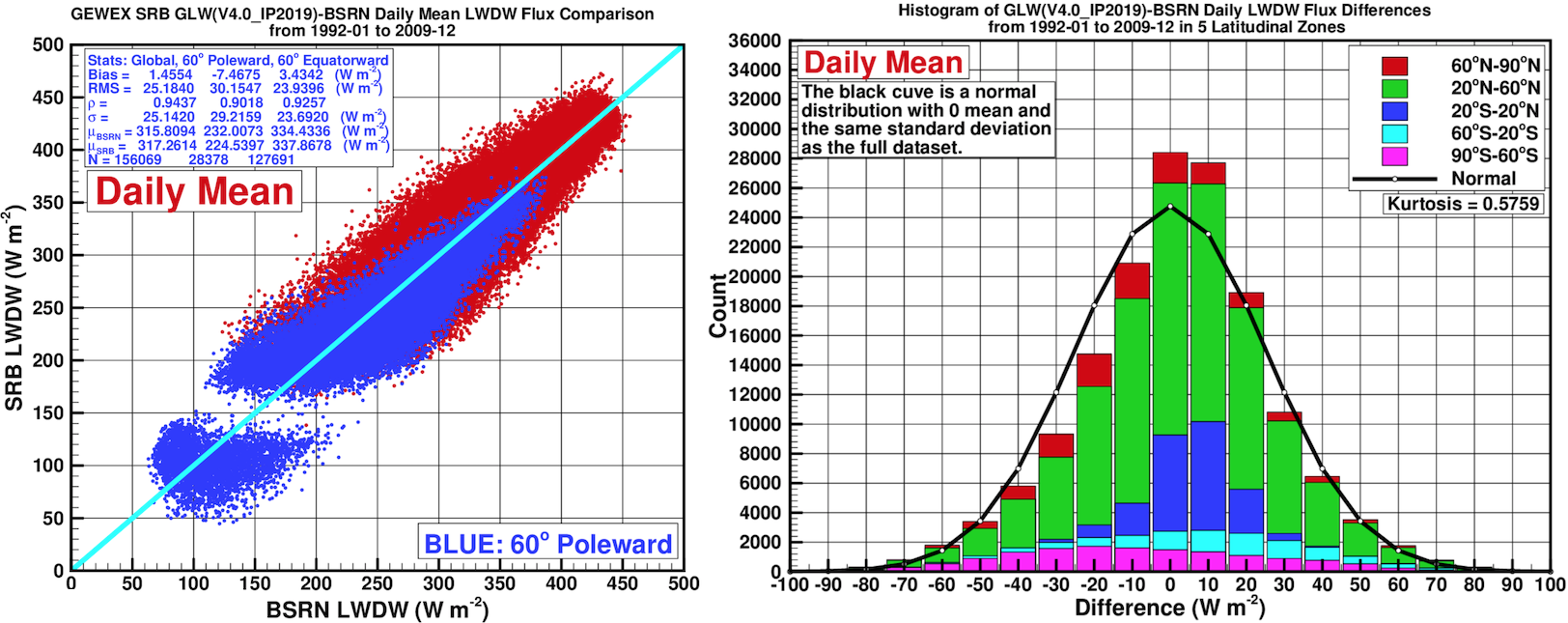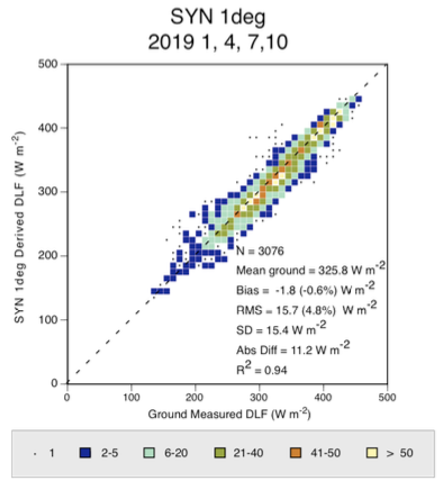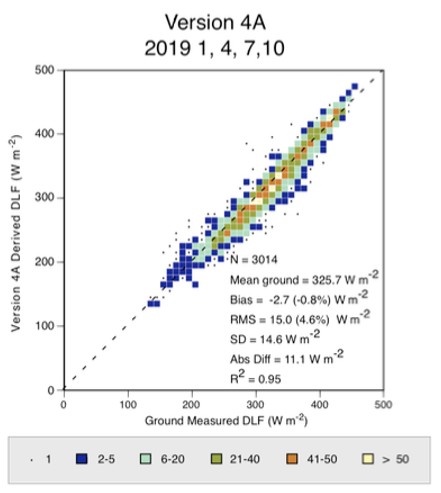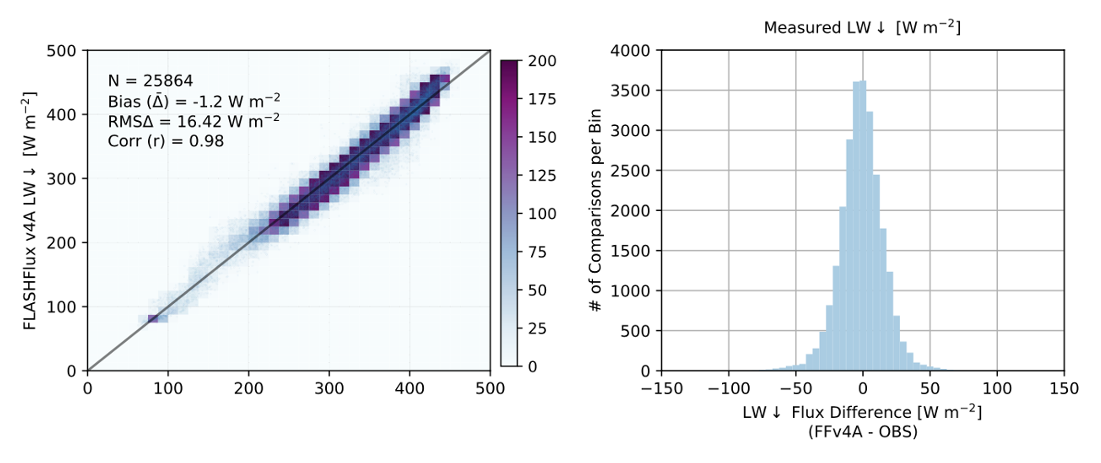Thermal/IR Flux Assessment¶
The quality of surface-based measurements are generally considered more accurate than satellite-derived values. However, measurement uncertainties from instrument calibration drift, operational uncertainties, instrumental changes, or data gaps are often unknown or unreported for many surface data sets. In 1989, the World Climate Research Program estimated "end-to-end" uncertainties for most routine-operation solar radiation ground sites in the range from 6% to 12%. Specialized high-quality research sites such as those in the Baseline Surface Radiation Network (BSRN) are estimated to be more accurate by a factor of two.
GEWEX SRB 4-IP¶
Validation of GEWEX SRB 4-IP LW surface downward parameters has been done by the GEWEX SRB team using land and ocean based observations. A summary of this validation at different time scales is presented at GEWEX SRB Validation. While the validation period is longer than the data available through POWER, the statistics obtained are applicable here.
A summary of the daily mean all-sky longwave (LW) radiative fluxes on a horizontal surface from NASA’s GEWEX SRB Release 4.0 validated against values from BSRN sites is presented below.
| Parameter | Region | Bias (%) | RMSE (%) |
|---|---|---|---|
| Daily Mean LW All-Sky Radiative Flux Jan. 1, 1992 – Dec. 31, 2009 NASA’s GEWEX SRB Release 4.0 | All Sites 60° Poleward 60° Equatorward | 0.46 -3.2 1.0 | 8.0 13.0 7.2 |
Comparison Plots: NASA’s GEWEX SRB Release 4.0 to BSRN Data

- Left — Scatter Plot:
- Right — Histogram of Differences:
CERES SYN1Deg¶
A summary of hourly all-sky longwave (LW) radiative fluxes on a horizontal surface from NASA’s CERES SYN1deg (Ed4.1) validated against values from BSRN sites for Jan., Apr., Jul., and Oct. 2019.
| Parameter | Region | Bias (%) | RMSE (%) |
|---|---|---|---|
| Hourly LW All-Sky Radiative Flux Mid-seasonal months 2019 NASA’s CERES SYN1deg (Ed4.1) | All Sites 60° Poleward 60° Equatorward | -0.6 2.0 -1.3 | 4.8 8.7 5.0 |
Comparison Plot: NASA’s CERES SYN1deg (Ed4.1) to BSRN Data
Hourly validation covers Jan., Apr., Jul., and Oct. 2019.

CERES FLASHFlux¶
A summary of hourly all-sky longwave (LW) radiative fluxes on a horizontal surface from NASA’s FLASHFlux 4A validated against values from BSRN sites for Jan., Apr., Jul., and Oct. 2019.
| Parameter | Region | Bias (%) | RMSE (%) |
|---|---|---|---|
| Hourly Mean LW All-Sky Radiative Flux Mid-seasonal months 2019 NASA’s FLASHFlux 4A | All Sites 60° Poleward 60° Equatorward | -0.8 2.0 -1.8 | 4.6 7.0 5.2 |
Comparison Plots: NASA’s FLASHFlux 4A to BSRN Data
Hourly validation covers Jan., Apr., Jul., and Oct. 2019, while daily covers Jan. 2019 through Dec. 2020.


Hourly: Scatter Density Plot
Daily: Scatter Density Plot (left), Histogram (right)